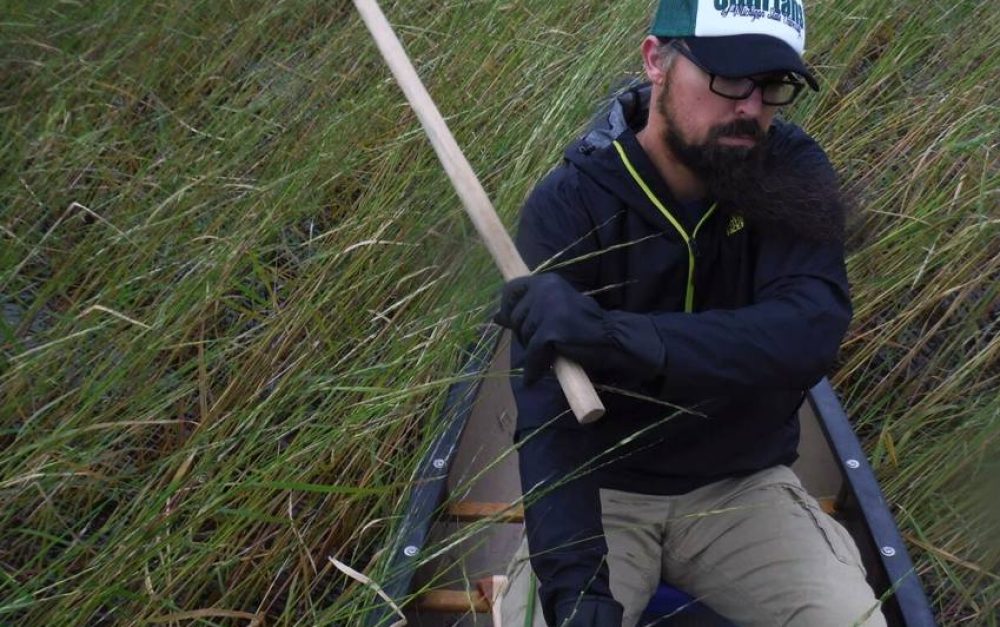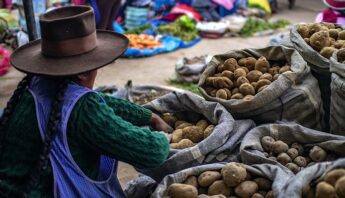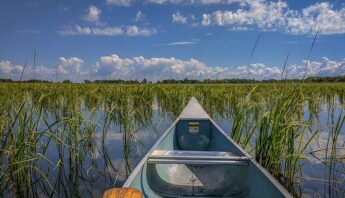PAN board member Kyle Powys Whyte holds the Timnick Chair in the Humanities at Michigan State University. He is Associate Professor of Philosophy and Community Sustainability and a member of the Potawatomi Nation. PAN’s Executive Director Kristin Schafer recently chatted with Kyle about Indigenous food sovereignty and how PAN’s work intersects with his own.
PAN board member Kyle Powys Whyte holds the Timnick Chair in the Humanities at Michigan State University. He is Associate Professor of Philosophy and Community Sustainability and a member of the Potawatomi Nation. PAN’s Executive Director Kristin Schafer recently chatted with Kyle about Indigenous food sovereignty and how PAN’s work intersects with his own.
What brings you to PAN’s board?
I’m primarily a scholar and activist working on climate justice and environmental justice. But, since I work mostly with Indigenous peoples, these issues are almost always related to food. Indigenous peoples who are concerned with climate change are most often concerned with the food system, as there’s a long history of Native peoples being dispossessed of their lands by the industrial agricultural system. So many of the issues PAN works on in fighting for a healthier food system are directly related to what I focus on in my own work.
How does industrial agriculture impact Indigenous peoples?
Historically, industrial agriculture wouldn’t have been possible without the dispossession of Indigenous peoples from their homelands. Then the environment was transformed by deforestation and terraforming of the land required to install monocultures. The U.S. very deliberately tried to force Indigenous peoples to be farmers of a particular type, and that was never quite successful. While, for many tribes, it’s not possible to return to traditional food practices in the shape they were in at some point in history, it is possible to revive some traditions and the philosophies behind them and to get involved with organic, ethical, and appropriately-scaled farming that supports local food systems.
What strategies have you seen as most impactful in promoting environmental justice for Indigenous communities?
Well, many people may be familiar with how Native peoples focus on their relationship to water. Growing food requires clean and sufficient water so this is one of the areas in which activism is focused, and one of the ways Native peoples have challenged industrial agriculture. In the Great Lakes, many Tribes focus on the spiritual aspects of water, and for example how it is linked to the traditional and current cultivation of wild rice.
Is there a role for U.S. policies in supporting Indigenous food sovereignty and equity in the food system?
Absolutely. One of the things Native people have been involved in is the Native Farm Bill—I know PAN submitted a letter of support for that Farm Bill and the coalition. For a lot of people in the U.S., it’s important to realize that Native peoples are a key ally in the struggle to overcome the wrongs and harms of industrial agriculture. We want to find ways to work together to promote farming that not only supports our communities and land, but is healthy and sustainable for all.
How can non-Indigenous people support the work to restore food sovereignty for Native communities?
In the wake of U.S. colonialism, Indigenous people were not the only ones dispossessed of land. Other groups were as well, including African Americans, Latinx—even many white people—have lost land to corporate entities taking advantage of unjust U.S. laws and programs. The challenge is not only getting land back, but re-learning how to steward the land in a healthy way and truly being food sovereign. Some focus on sovereignty as “control” of food; Indigenous peoples see food sovereignty as having a proper ethical relationship to food. You know where your food comes from, and understand that you’re dependent on it for nutrition but also for cultural reasons. Food is a core part of our identity and who we are — we are all in relationship with food in many ways — and that’s worth fighting for.
What is your ideal vision of a just, healthy food system?
We need a food system we are motivated to take care of because we have a moral relationship to our food, and it is central to our identity. If this were the primary way we related to food, we wouldn’t have seen the rise of industrial agriculture. That’s an ideal we need to strive for. Though PAN’s work may be focused on science or policy, organizations like PAN play an essential role in building awareness that food is spiritual, and central to identity and culture.







